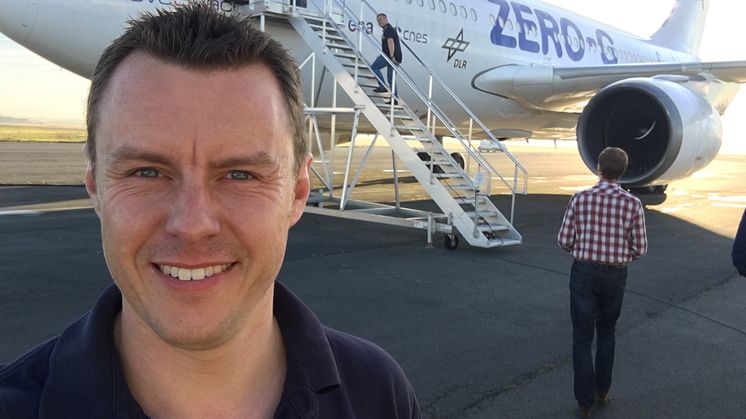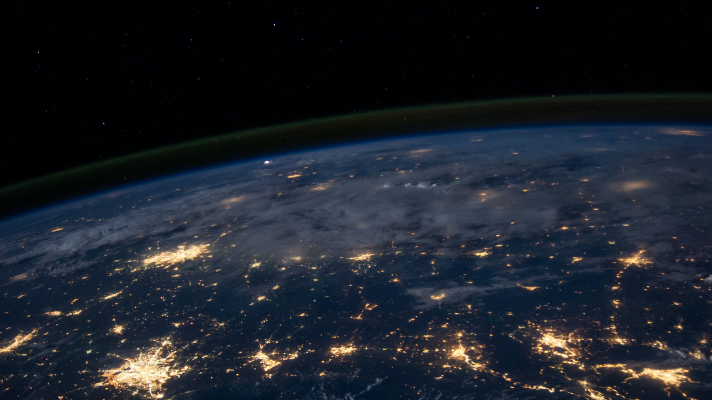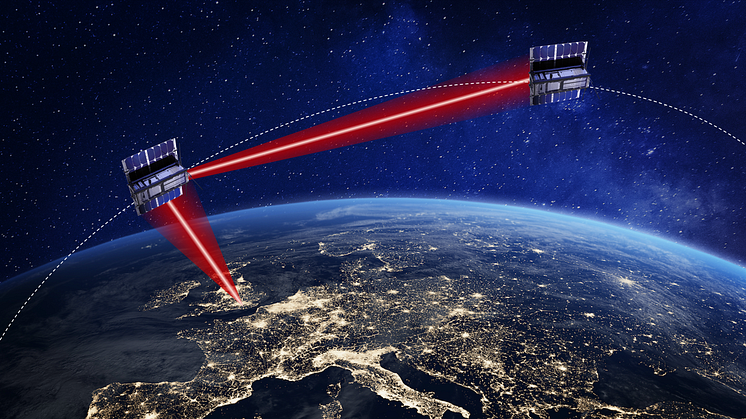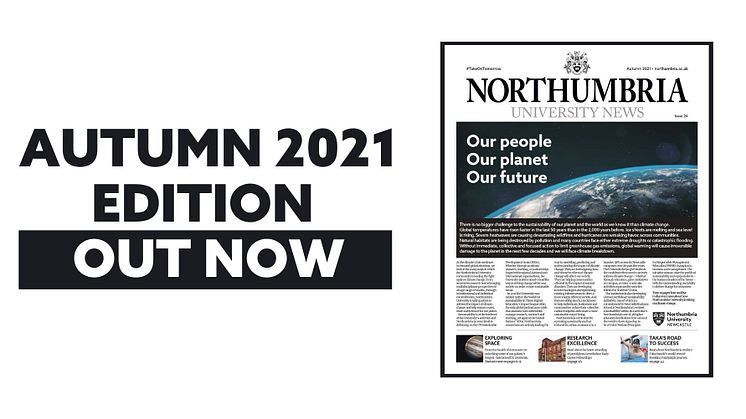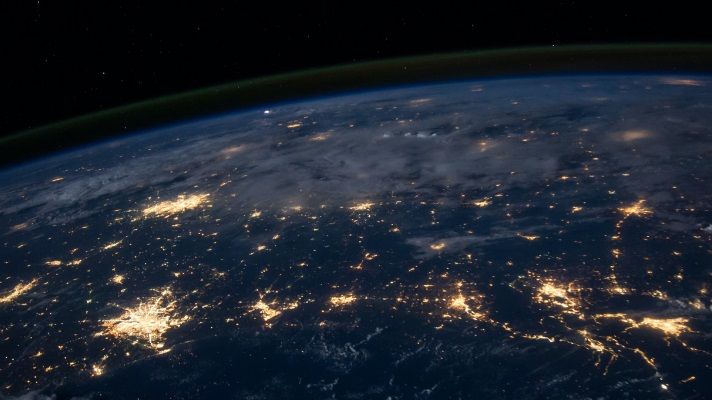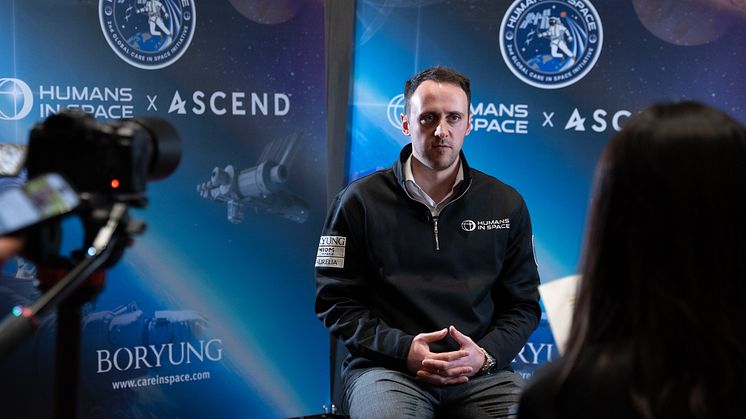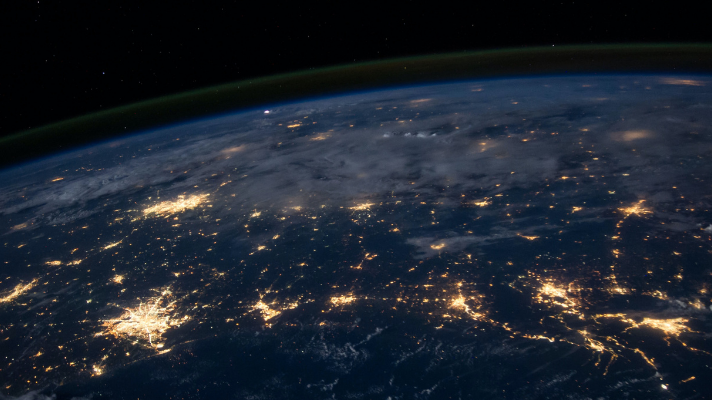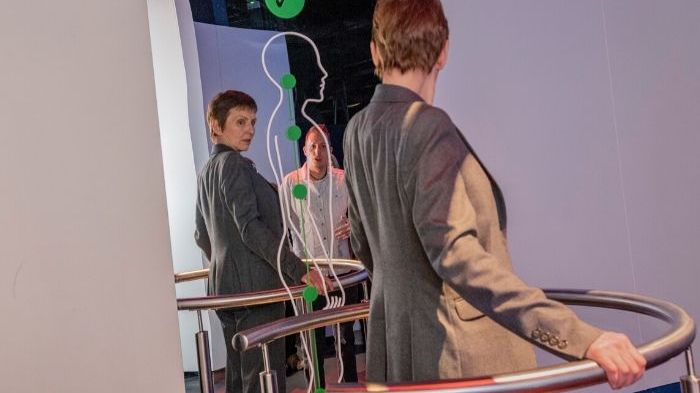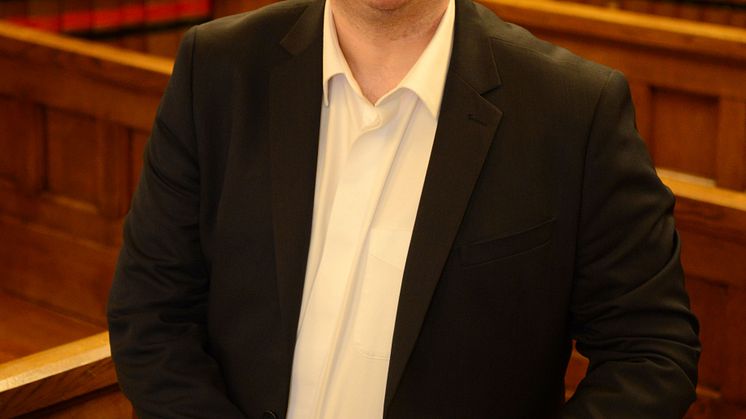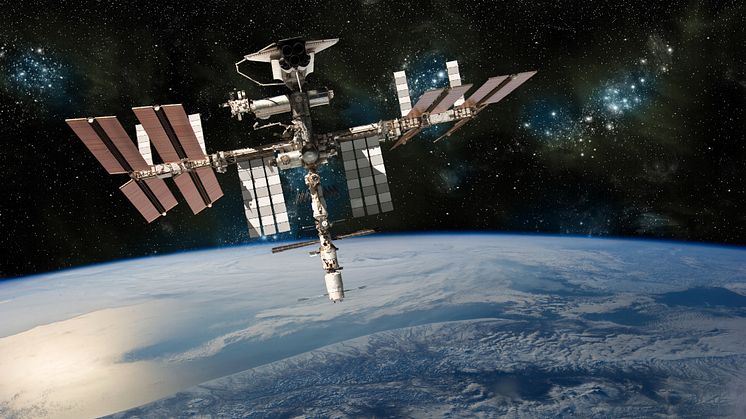
Press release -
Northumbria leads major study to improve astronauts’ health on board the International Space Station (ISS).
Space health experts at Northumbria University are leading research into how astronauts’ bodies decondition while living and working on the International Space Station (ISS).
Orbiting the Earth at an average altitude of 250 miles, astronauts on board the ISS experience significant deconditioning of their bodies due to the reduced gravity environment. Their muscles become smaller and weaker, and their bones lose density.
A team from Northumbria University’s Aerospace Medicine and Rehabilitation Laboratory, led by Professor Nick Caplan, working with the University of Southampton and Durham University, has secured funding from the UK Space Agency to explore the decline in size, quality and strength of spinal muscles among astronauts after spending six months living and working on the ISS.
They will also assess changes in astronaut spinal posture, their walking technique, control of movement and pain, immediately following the astronauts’ returning from their mission to see if these changes are related to the changes seen in their spinal muscles and bones. The team will also repeat their measurements 30 days after landing to evaluate the effects of the intense astronaut reconditioning programmes in the first month returning to Earth.
The Northumbria University team will also take its previous artificial gravity ‘bedrest study’ to the next level. Following a successful contribution to the European Space Agency (ESA) sponsored Artificial Gravity Bedrest campaign in 2019, Professor Caplan led a successful bid to be selected once again by ESA to take part in one of their next bedrest campaigns.
The 2019 campaign saw 24 participants spend 60 days in bed at the :envihab facility in Germany, where they continuously lay in a head down tilt position to simulate the long-term effects of exposure to microgravity.
They were also exposed to artificial gravity for 30 minutes each day on a human centrifuge. This piece of equipment spun the participants so that they were pulled down onto their feet, thus simulating the gravitational loading normally experienced when standing up against Earth’s gravity. In the next ESA bedrest campaign, this time taking place in Planica, Slovenia, the Northumbria team will again evaluate the effectiveness of artificial gravity on the spinal muscles and bones, but this time with participants performing resistive vibration exercise while they are spun on the centrifuge.
Professor Caplan and his team are interested in spinal postural deconditioning, an issue relevant not just to astronauts, but also to people on Earth with low back pain and age-related declines in spinal posture. There is also likely to be a growing number of people with spinal deconditioning following the Covid lockdowns because of increased sedentary behaviour.
“Understanding the changes that take place in the spinal muscles and bones following exposure to microgravity is vital so that effective interventions can be developed to maintain spinal health,” said Professor Caplan. “Our research will provide this information and hopefully help astronauts stay injury free as they venture further out into the solar system to the Moon and, one day, to Mars. We are really excited about recruiting our first astronauts onto the study.”
University of Southampton’s Professor Maria Stokes, OBE, added: “Our research is very relevant to healthcare on Earth, as microgravity leads to rapid changes like those seen in patients e.g., after acute injury or enforced bed rest on intensive care, as well as longer-term changes from inactivity due to diseases affecting mobility or a sedentary lifestyle in the general population. Our findings should help us develop more effective ways of targeting exercises to prevent loss of muscle function.”
The latest study at Northumbria is one of five new projects set to receive a share of £440,000 of UK Space Agency funding in its first year. These research projects will support much longer space missions needed to explore the Moon and further afield. They include an initiative from Manchester Metropolitan University to study the prolonged effects of isolation on physical and psychological health, and a research project from the University of Birmingham to investigate the effects of space flight-associated neuro-ocular syndrome (SANS) – a condition that can have severe consequences for astronaut health.
British European Space Agency astronaut Tim Peake said: “It’s exciting to see this cutting-edge research taking place here in the UK. We can learn so much about the human body from spaceflight, especially the ageing process. This research could enable astronauts to carry out longer missions and explore further into space, whilst benefiting everyone on Earth.”
Science Minister George Freeman said: “Our space science is about cutting-edge life science as well as rocketry and satellites: the UK is at the heart of state-of-the-art biomedical monitoring, providing huge potential insights into human health.
“This research could allow astronauts to safely embark on longer and more challenging missions, for the benefit of us all.”
The announcement comes during World Space Week, which runs from the 4th to 10thOctober. The annual event, led by the United Nations, celebrates the contribution of science and technology to improving lives on Earth. This year’s theme is Women in Space.
Topics
Categories
Northumbria is a research-rich, business-focused, professional university with a global reputation for academic excellence. Find out more about us at www.northumbria.ac.uk --- Please contact our Media and Communications team at media.communications@northumbria.ac.uk with any media enquiries or interview requests ---







